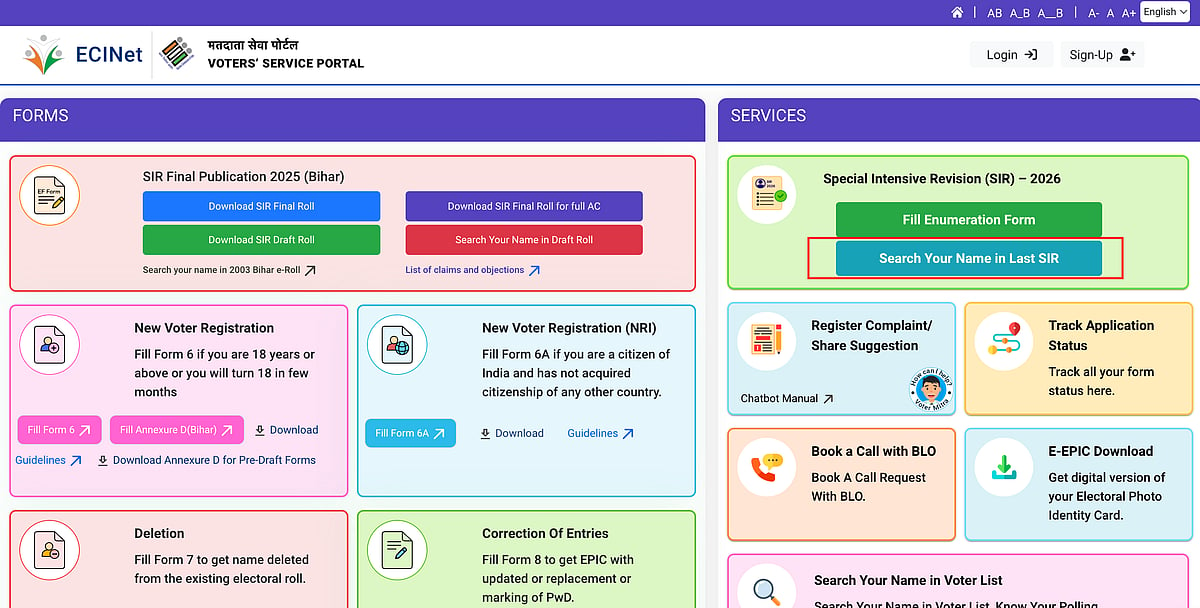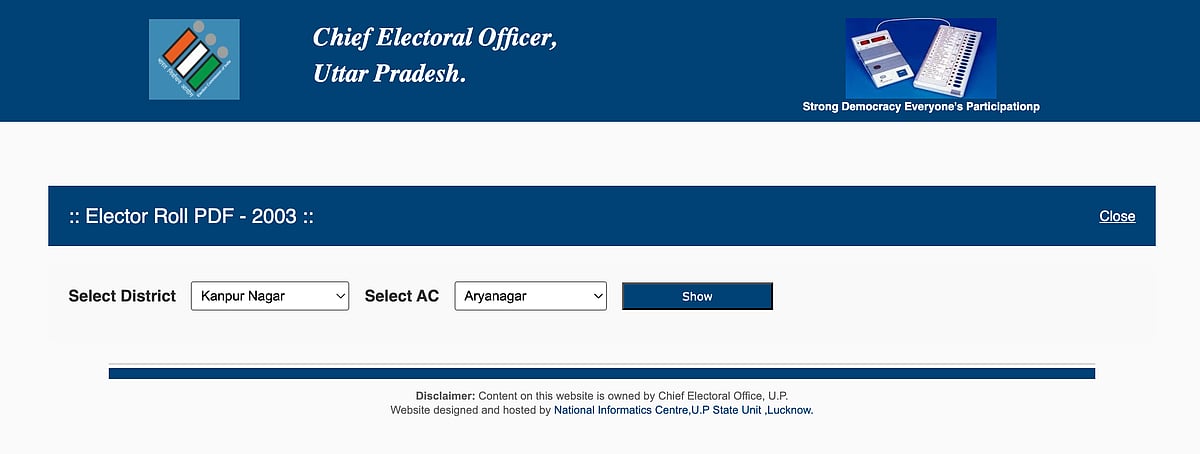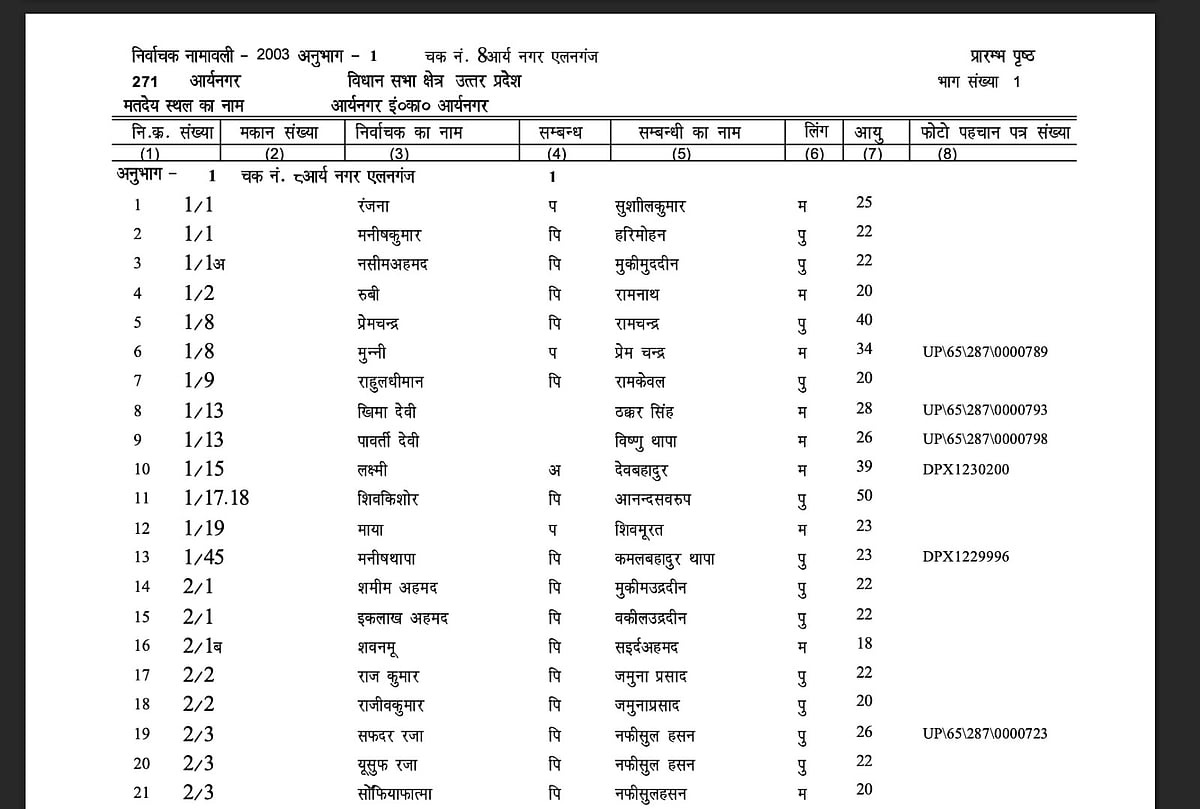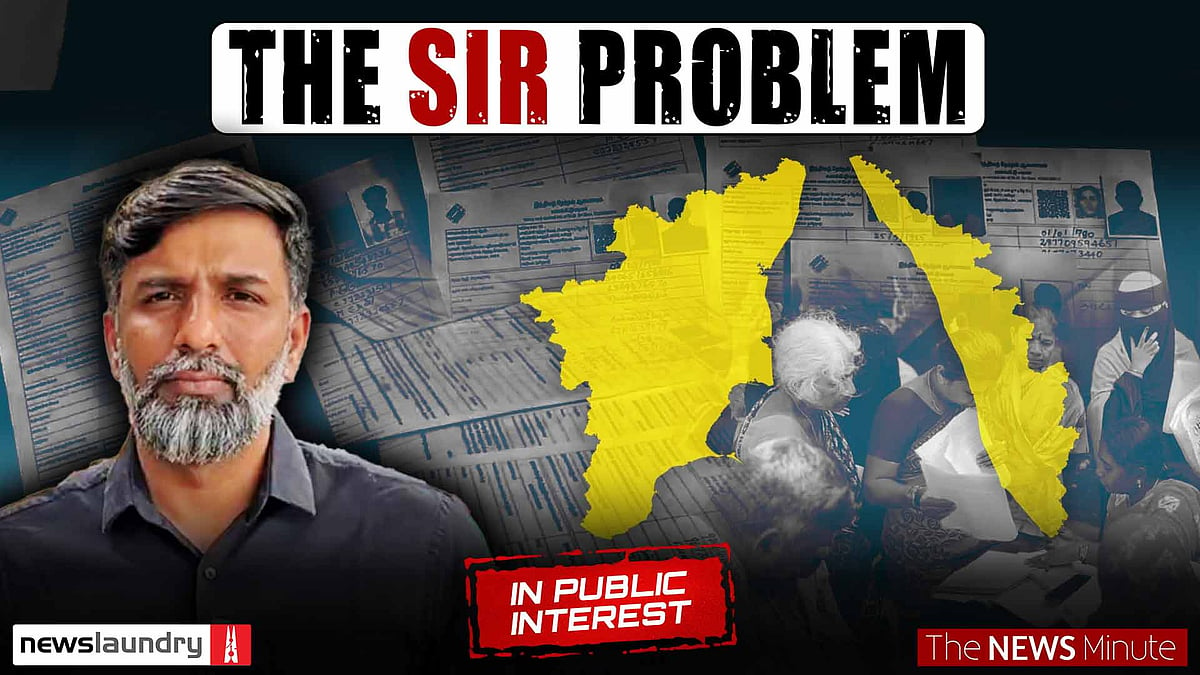‘Inhuman work pressure’: Inside the SIR crisis pushing poll workers to the edge
The Congress has castigated the Election Commission and the BJP for the deaths of BLOs, but poll officials insist there is no link with SIR.
A nationwide effort to clean up India’s voter rolls seems to be spiralling into a crisis for the people meant to carry it out. At least five Booth Level Officers across 12 states and union territories have died by suicide during the second phase of the Election Commission’s Special Intensive Revision (SIR), which began on November 4.
The Congress has castigated the Election Commission and the BJP for the deaths. Poll officials, meanwhile, insist there is no link between SIR and the toll. But accounts emerging from the field point to a system buckling under its own urgency.
This phase requires BLOs to distribute, collect and digitise voter verification forms by December 4 for the SIR. It was designed as a high-rigour audit of electoral rolls but has become a race against impossible targets: long days, technical failures, relentless monitoring, and the pressure to retrieve voter records from more than two decades ago. Voters, too, are struggling to provide information that many no longer have.
This is what the crisis looks like on the ground.
In their own words
Of the BLOs who held the SIR process responsible for their death were those from West Bengal, Kerala, Gujarat, and Rajasthan.
Rinku Tarafdar, a 53-year-old para teacher from Krishnanagar who was assigned BLO duties in West Bengal’s Nadia district, allegedly died by suicide on November 22. She left behind a two-page note in Bengali in which she held the Election Commission responsible for her death.
“I cannot handle this inhuman work pressure. I have completed 95 percent of the offline work, but I do not know anything about the online work. I have to be ready at all times, everything must be submitted on time. Nothing will be forgiven. All government documents of the school are in order. My children should be able to live properly. That is my final wish. Truly, my conscience is exhausted. I cannot bear it,” she wrote.
Aneesh George, a BLO who died by suicide on November 16 in Kerala, did not leave behind a suicide note. But his family and colleagues claimed the school office attendant had been struggling with the pressure to finish his SIR workload within the stipulated time.
In the case of Mukesh Jangid, who died by suicide in Rajasthan November 16, Bindayaka police station in charge Vinod Kumar said a suicide note stated that he was under “extreme work pressure” from his supervisor and had been “threatened with suspension”.
No suicide note was found after the death of Shantimoni Ekka in Kolkata on November 19 either. But her family said she had become mentally distressed and overwhelmed by the additional responsibilities.
Arvindkumar Muljibhai Vadhel, a government teacher working in Gir Somnath’s Kodinar, died on November 21. A purported suicide note attributed to him said: “For the last several days, I have been exhausted and mentally overburdened. I do not have any other way but to take this last step.”
Eleven other BLOs have died since the SIR exercise began, from heart attacks and exhaustion. Their families claimed work pressure had a role to play. But poll officials have questioned this link.
While the Bengal chief electoral officer has sought a report from the district magistrate (DM) on the two deaths, the Election Commission has not released any statement on the suicides being reported from various states.
In Tarafdar’s death, a senior EC official was quoted as saying, “Why was Rinku Tarafdar mentally distraught? What had happened? After the report arrives, the next course of action will be decided.”
What SIR demands
Unlike the annual summary revision, SIR requires BLOs to: visit every household, distribute detailed enumeration forms, collect and verify information, cross check details with the electoral rolls of 2002 and 2003, digitise every form using a national mobile application, and meet daily targets set by tehsildars and district officials
Voters must provide details from the last nationwide SIR conducted in 2002, including constituency, booth number and voter ID number.
Consider this for example: You are a tech-savvy 26-year-old who grew up in Kanpur and moved to Lucknow for work. Now, to retrieve your parents’ voter ID number from the 2003 rolls, you will have to visit the EC website.
Then click on “Search Your Name in Last SIR”.

After selecting Uttar Pradesh as your state, you will have to select the district and the assembly constituency, which will give a list of all polling stations.

Let us say your polling station is Arya Nagar Inter College (1). On selecting it, you will be asked for a CAPTCHA, after which a PDF with 1,500 names will be made available. The voter will then have to search for their parents’ voter ID.


But for many households, especially in urban and migrant communities, this information is difficult to retrieve.
A 26-year-old voter from Tamil Nadu claimed, “I live in Chennai but my hometown is in Salem. When I came back for a ceremony, the BLO had already given my family the SIR forms. Each of us received two copies. The first issue was the Tamil translation…The field for voter ID number is translated as identity, which could mean Aadhaar or license or ration card. The form is not even bilingual.”
“Finding my parents’ voter details was another struggle. I only managed because I knew Attur used to fall under Rasipuram before the 2009 delimitation. Ordinary voters will not know where to look, and BLOs are not helping.”
Technical failures and field challenges
A government school principal in Gujarat described the workload as unmanageable.
“The app keeps crashing because every BLO is trying to upload at the same time. Yet there is constant pressure to finish a fixed number of forms each day. The targets do not reflect technical reality. The app cannot support this volume. In villages, the process is manageable because people have lived in the same place for years, but in cities it is beyond difficult.”
The principal pointed to a colleague who has been told to meet 1,400 voters to collect their forms. In a city, he has managed to meet only 58 so far. “He has been assigned to a newly built society where he is expected to match details with the old rolls. But this society did not exist back then.”
The trouble with online uploading is clearly visible in the data provided by the Election Commission as well.
As of Sunday, November 23, while 99.02 percent of enumeration forms have been distributed, only 39.29 percent have been digitised. In Uttar Pradesh for example, with over 15 crore voters, only 19.02 percent of the forms have been digitised.
The BLO from Gujarat said names in Gujarati have spelling variations. “If the voter struggles to fill the form, the BLO ends up bearing the brunt. Officers monitor us every hour. Teachers have received notices for not meeting targets.”
He shared screenshots of the app failing to load and said: “Teacher unions protested against SIR duties, but it made no difference. Names that do appear in the 2002 roll are not uploading because of technical glitches. The process has become even more complicated.”

A teacher in Meerut who was given 867 forms said: “I have managed to digitise only around 250 forms. We are the ones filling everything. How are we supposed to find names from the 2003 list? Every hour the tehsildar checks on us, and the DM and SDM are constantly asking for updates. In the second phase they expect us to correct mistakes automatically. They should have created a separate team for uploading. Teachers have been told to prioritise this over school work, and students have lost an entire month of studies. If the EC can collaborate with TCS for the app, why can it not hire a private agency for data entry. After what happened in Bihar, there is fear among all BLOs.”
The teacher said that uploading a single form typically takes one to one-and-a-half minutes, but frequent app crashes — especially in the mornings or during peak hours — can force them to wait 30 minutes to an hour before they can resume. Although the EC has reportedly upgraded its servers, the problem continues.
Meanwhile, a video in UP’s Basti is making rounds on social media where an SDM can be heard scolding and ordering the registration of FIR against a BLO who apparently didn’t contribute in the SIR process.
A BLO from Ghaziabad shared messages with Newslaundry she had received from officials, warning her to speed up the work.

An anganwadi worker from Madhya Pradesh claimed, “We have homes and children to take care of…yet we are called for meetings every day. They call us till midnight.”
Meanwhile, the Noida administration has registered FIRs against over 60 BLOs and seven supervisors across three police stations for alleged negligence and disobedience during the SIR exercise. Further, two BLOs have been suspended for alleged negligence and a third has been booked based on a BJP leader’s complaint in UP’s Bahraich.
Political pressure?
Several political leaders have raised concerns and protests across multiple cities have been carried out against the exercise.
West Bengal Chief Minister Mamata Banerjee wrote that it is “almost certain that by December 4, voter data across multiple constituencies cannot be uploaded with accuracy” and warned that pressure on BLOs risks “disenfranchisement of genuine voters” and “erodes the integrity of the electoral roll”. She also criticised the Election Commission for issuing show cause notices to already stressed BLOs.
Aazad Samaj Party (Kanshi Ram) chief Chandrashekhar Azad had written to the Chief Election Commissioner with several demands. These include the extension of the SIR deadline, removal of the mandatory requirement to supply 2003 records, relief for teachers and anganwadi workers from BLO duties, appointment of trained youth or data entry staff, a high level inquiry into all BLO suicides and deaths, urgent improvement of digital infrastructure in rural areas, a safer and more humane electoral process for both workers and the public.
Newslaundry has asked the Election Commission about the one month SIR deadline, app failures, workload concerns, remuneration, and compensation for BLO deaths. This report will be updated if a response is received.
If the government can hike print ad rates by 26 percent, we can drop our subscription prices by 26 percent. Grab the offer and power journalism that doesn’t depend on advertisers.
 SIR leaves BLOs overworked, citizens confused
SIR leaves BLOs overworked, citizens confused